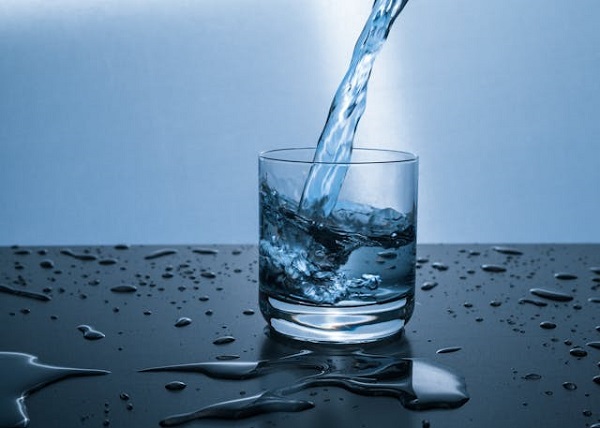
Staying well-hydrated is a fundamental aspect of maintaining overall health and well-being. Water plays a crucial role in various bodily functions, such as regulating body temperature, aiding digestion, and supporting nutrient absorption. Adequate hydration is essential for optimal organ function, joint lubrication, and skin health.
The Benefits of Staying Well-Hydrated are manifold, encompassing improved cognitive function, enhanced energy levels, and overall physical well-being. This simple yet vital practice also helps prevent dehydration-related issues like headaches, fatigue, and impaired cognitive function. Embracing a habit of regular water intake is a proactive step toward promoting physical vitality and mental clarity. In this introduction, we will explore the importance of staying well-hydrated and provide practical tips for incorporating sufficient water intake into your daily routine.
How to Stay Well-Hydrated?

Staying well-hydrated is crucial for maintaining overall health and vitality. The Benefits of Staying Well-Hydrated are numerous, including improved organ function, enhanced cognitive performance, and heightened energy levels. Here are some practical tips to ensure you meet your body’s hydration needs:
-
Set a Daily Goal:
Aim to drink a specific amount of water each day, such as eight 8-ounce glasses (the “8×8” rule), or follow personalized recommendations based on your weight, activity level, and climate.
-
Carry a Water Bottle:
Keep a reusable water bottle with you throughout the day. Having water readily available makes it easier to stay hydrated, whether you’re at work, school, or on the go.
-
Create a Schedule:
Establish a routine for drinking water by incorporating it into your daily schedule. For example, have a glass of water upon waking, before meals, and before bedtime.
-
Infuse with Flavor:
If plain water is unappealing, add natural flavors with slices of citrus fruits, cucumber, mint, or berries. Herbal teas and infused water can make hydration more enjoyable.
-
Monitor Urine Color:
Pay attention to the color of your urine. Clear or light yellow urine generally indicates proper hydration, while dark yellow or amber may signal dehydration.
-
Eat Hydrating Foods:
Include water-rich foods in your diet, such as fruits (watermelon, oranges, and berries) and vegetables (cucumbers, celery, and lettuce).
-
Set Reminders:
Use smartphone apps or set alarms to remind yourself to drink water at regular intervals. This is especially helpful for those with busy schedules.
-
Balance Electrolytes:
In situations where you’re sweating heavily, like during intense workouts, consider beverages that contain electrolytes to help maintain a proper fluid balance.
-
Be Mindful of Alcohol and Caffeine:
Limit the intake of alcohol and caffeinated beverages, as they can contribute to dehydration. If consumed, balance them with additional water intake.
-
Listen to Your Body:
Pay attention to thirst cues and respond promptly. Thirst is a natural indicator that your body needs more fluids.
Benefits of Staying Well-Hydrated

Staying well-hydrated offers numerous benefits for your overall health and well-being. Here are 10 compelling reasons to prioritize proper hydration:
-
Optimal Organ Function:
Adequate hydration supports the proper functioning of vital organs such as the kidneys, liver, and heart, helping them operate efficiently.
-
Improved Physical Performance:
Hydration is essential for maintaining stamina and endurance during physical activities. Proper fluid balance supports muscle function and helps prevent fatigue.
-
Enhanced Cognitive Function:
Dehydration can impair cognitive function, leading to difficulties in concentration, memory, and overall mental clarity. Staying hydrated promotes better focus and cognitive performance.
-
Temperature Regulation:
Water plays a crucial role in regulating body temperature through sweating and evaporation. Proper hydration helps prevent overheating and supports the body’s natural cooling mechanisms.
-
Joint Lubrication:
Hydration is essential for maintaining joint health by ensuring proper lubrication. This can help reduce the risk of joint pain and stiffness.
-
Digestive Health:
Water aids in digestion by breaking down food and facilitating the absorption of nutrients. It also helps prevent constipation by keeping the digestive system functioning smoothly.
-
Skin Health:
Proper hydration contributes to healthy and radiant skin. It helps maintain skin elasticity, reduces the appearance of wrinkles, and promotes a youthful complexion.
-
Detoxification:
Water plays a key role in flushing out toxins and waste products from the body through urine. Staying well-hydrated supports the kidneys in their detoxification functions.
-
Weight Management:
Drinking water before meals can help control appetite and contribute to weight management by promoting a feeling of fullness, potentially reducing overall calorie intake.
-
Prevention of Dehydration-Related Issues:
Adequate hydration helps prevent common issues associated with dehydration, such as headaches, dizziness, and fatigue. It also supports overall immune function.



